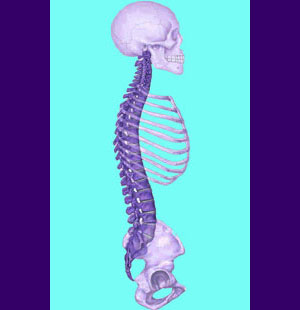
Nutritional supplements for back pain are a holistic option for back pain treatment. Nutritional supplements can consist of pills, liquids or whole foods. Quality nutritional supplements can be expensive, but are usually worth the cost.
Nutritional supplements do not have the same potential side effects as medicines, nor are they addictive. Besides possibly helping to relieve some types of back pain, they will also improve your general overall health.
Patients are strongly cautioned to not waste money on nutritional supplements which are more hype than substance. The latest research often points to particular nutrients as being helpful for various health conditions, but time typically tells another story altogether. In many cases, the “research” is actually simply marketing propaganda released by the product manufacturer. Before buying any costly supplements, be sure to investigate them thoroughly and consult with your doctor with any questions you might have.
This dialog focuses on supplements that can be added to any diet to decrease the suffering associated with chronic back pain.
Vitamins are Nutritional Supplements
Here is a list of some vitamins and minerals which may prove useful as part of a complete back pain diet:
Vitamin B12 has been shown to alleviate some forms of back pain. B12 is also called cobalamin and is found in certain meats and fortified foods. B12 is important for nervous system function and also reduces the risk of heart disease.
Vitamin D, also called chorecalciferol, is found in some fish, fish oils and fortified foods. Vitamin D is also produced from exposure to the sun. Vitamin D is crucial in maintaining strong bones. A deficiency of vitamin D is one of the contributing causes of osteoporosis. Vitamin D is an oil-based Vitamin and too much consumption can be mildly toxic to humans.
Vitamins A, C, and K also play roles in maintaining a healthy back.
Calcium is the key ingredient for strong bones. Calcium is found in dairy products, green leafy vegetables and nuts. A deficiency of calcium is a main contributor to porous bones.
Magnesium is a mineral found in many green vegetables, legumes, nuts and whole grains. Magnesium is important for creating strong bones and healthy back muscles.
Additional Nutritional Supplements for Back Pain
Glucosamine and chondroitin for back pain are natural compounds which may help to rebuild cartilage and retard the degenerative processes in the spine. While the hype surrounding G and C supplements has died down considerably, many patients still swear by the benefits they claim to have received from regular ingestion of these compounds.
Protein is an important building block of muscle issue. It is important to keep a balanced diet of high protein foods at all times and especially when recovering from a back injury.
Water is vital to all cells in the body. Keeping cells hydrated is crucial at any age. As we get older, our intervertebral discs lose water and naturally dehydrate. It is important to keep our bodies hydrated to preserve the moisture left in the discs.
Nutritional Supplements for Back Pain Guidance
Make sure to consult a doctor or nutritionist for advice before starting to take any nutritional supplements. Whole foods are usually the best way to ingest the proper blend of necessary vitamins and minerals, but supplements can fill in missing components of an ideal diet.
If you find your diet lacking in some key ingredients, you might want to investigate pill or liquid forms of certain supplements. Make sure to follow the recommended daily allowance, since some supplements can be harmful in large quantities.
Beware of any products that claim miracle cures for chronic pain using combinations of vitamins, minerals and other compounds. While balanced nutrition is crucial to your health, there is no easy universal dietary solution for back ache. Investigate products carefully before purchasing.
Back Pain > Back Pain Diet > Nutritional Supplements for Back Pain




